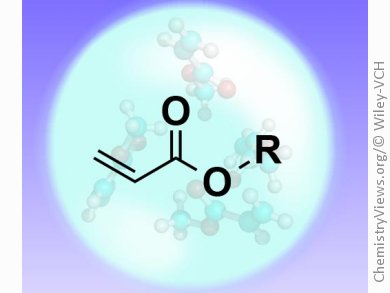Acrylate esters are stably encapsulated in a crystalline host consisting of three-dimensionally networked molecular capsules. Single crystals of interconnected cobalt tri(pyridyl)triazine capsules can be used as a solid-state storage medium for the reactive and volatile esters.
Makoto Fujita and co-workers, University of Tokyo, Japan, demonstrate single-crystal-to-single-crystal inclusion of several acrylate esters in the networked molecular capsules. Harnessing the single crystallinity of the host, the structures of methyl and tert-butyl acrylates have been determined by X-ray diffraction analysis.
Once encapsulated, the acrylate esters do not undergo polymerization even under UV irradiation or heating. Trigger molecules, such as toluene, release encapsulated acrylates on demand.
- Stable Encapsulation of Acrylate Esters in Networked Molecular Capsules,
Guo-Hong Ning, Yasuhide Inokuma, Makoto Fujita,
Chem. Asian J. 2013.
DOI: 10.1002/asia.201301298




